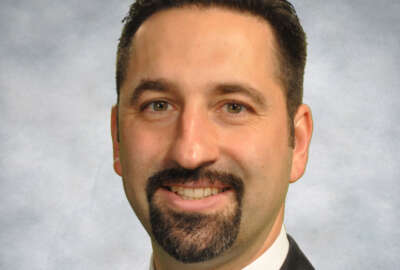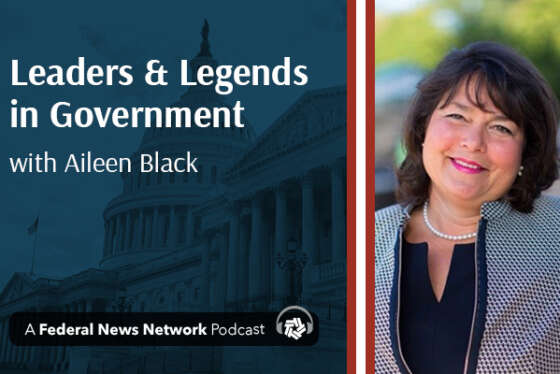
Former NASA CIO explains how adversity makes strong leaders
Renee Wynn, former chief information officer at NASA, joins host Aileen Black on this week's Leaders and Legends to share important leadership lessons she learned...
Renee Wynn, former chief information officer at NASA, joined host Aileen Black on this week’s Leaders and Legends to share important leadership lessons she learned during her career.
In addition to her time at NASA, Wynn also served as deputy CIO at the Environmental Protection Agency. Although recently retired, she remains active as a board member and advisor. She frequently uses LinkedIn to highlight trends and her thoughts on federal IT, and remains a sought-after voice on government technology. Among her post-federal pursuits, she is a fellow at the National Academy of Public Administration.
According to Wynn, her leadership style evolved over the years, partly out of necessity and partly through natural maturation. She said she was exposed to some amazing leaders at NASA who taught her many important lessons. One former NASA administrator told her to, “’Take care of your people, and they will take care of the work.’ I have really tried to emulate him and his success.”
Wynn said an incident when she worked at the EPA also influenced her leadership style. She said her last year at the agency was a tough one in part because she poorly handled what she called a significant leadership challenge. According to Wynn, “The EPA had selected an individual to be the CIO and she was so well suited for the position. The nomination process was very long and went on and on. This was difficult to navigate what that meant and I hadn’t really been through something like that before. I was frustrated with the process. I just didn’t handle it very well.”
A few years later Wynn read a book titled “Leadership and Self-Deception: Getting Out of the Box” by The Arbinger Institute. After reading the book she realized that her co-workers probably felt she was angry with them and unsupportive of their success.
But the reality was quite different.
“I was struggling to keep up with the work. I was stressing myself out more than probably necessary. I can reflect on that point in time now and know that I own my behaviors, and they weren’t the best that I could put forward,” she said. “I know that from that ‘a-ha’ moment forward, when I get into a stressful place, or into a chaotic place, I really started to say, Okay, what’s important to them? How do I situate myself and how do I listen? Because they need to know that I care. And they need to be able to trust me to help solve their problem.”
Wynn said that unfortunately the lessons she learned came at a great cost. Some working relationships and friendships at EPA were damaged but she hopes that time will heal them.
“I think maybe all of us have grown from that situation so that would be the near term story. I’m sorry for my approach back then,” she said. “I know I could have done better. I’ve really strived to do better since that moment.”
Wynn said while the book helped her work through the challenges she was facing, it also offered guidance on how to build a productive relationship with your team.
“As a leader, it helps you realize, where are you with the issue? Where are you with the individual that you might be working with at the time and if you feel heartfelt, genuine care to help them and support them? Then you can be genuine and it will come across to your team,” she said. “I really pivoted to try to focus on that mindset. Taking this approach your leadership style evolves kind of naturally, to fit the situation and to fit the person.”
Wynn also said that anyone who would like to be the CIO of a large agency should interview some CIOs to get their thoughts on leadership. She said they will likely tell you that effective leadership boils down to your ability to listen, collaborate with challenging people, to solve problems and to treat people well.
“Then put yourself on that journey to make sure that you’ve got those skills,” she said. “The CIO job is not about technical. It really is about the people part. So you need to show yourself his ability to lead people and to get those results, no matter how challenging the job is.”
Copyright © 2025 Federal News Network. All rights reserved. This website is not intended for users located within the European Economic Area.





